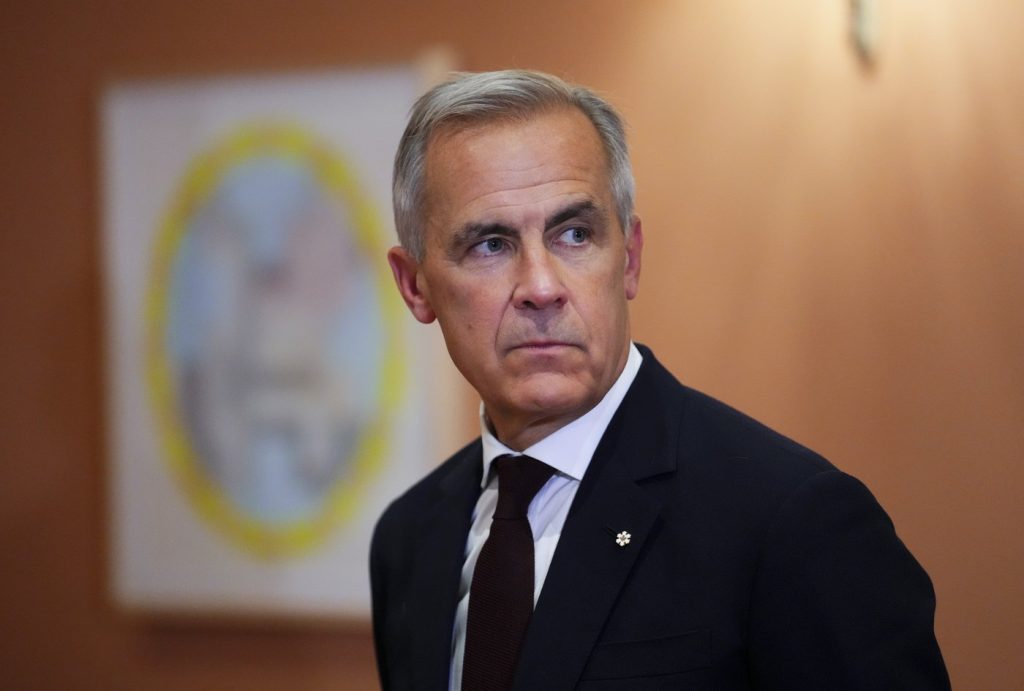Mark Carney, Canada’s newly appointed Prime Minister, is set to attend the United Nations General Assembly for the first time, amid escalating tensions in the Middle East and U.S. President Donald Trump's criticism of multilateralism. Carney’s visit will take place from Sunday to Wednesday, although he will not deliver a speech during the 80th Session of the General Assembly. Instead, Canada’s Foreign Affairs Minister Anita Anand will speak on behalf of the Canadian government later in the week.
According to a government press release, Prime Minister Carney will engage with world leaders at the UN to promote peace, security, and human rights. Meetings with UN Secretary-General António Guterres, heads of state, and CEOs are scheduled. The delicate diplomacy surrounding the situation in Gaza and the West Bank will be central to these conversations, as nations navigate the potential backlash from the American administration.
Canada and its ally nations are anticipated to recognize an independent Palestinian state during the General Assembly. This move has drawn criticism from U.S. Secretary of State Marco Rubio, who argues that such actions would bolster Hamas’s position. Earlier this week, the U.S. vetoed a UN Security Council resolution calling for an immediate ceasefire in Gaza, as American officials contended that the resolution failed to adequately condemn Hamas.
In recent developments, Rubio revoked the visas of Palestinian President Mahmoud Abbas and 80 other officials, but the UN General Assembly subsequently voted to allow Abbas to address the assembly via video link. Susan Rice, the former U.S. permanent representative to the UN, commented that while the assembly could be significant due to the push for Palestinian statehood, it may ultimately lack substance.
This year’s assembly theme, "Better together: 80 years and more for peace, development and human rights," contrasts sharply with Trump’s diminishing support for the UN. He has mandated a review of U.S. involvement with the organization, withdrawn from the Human Rights Council, and halted U.S. funding. Observers are keenly watching what tone President Trump will adopt if he speaks at the assembly next week.
Rice emphasized that, despite valid criticisms of the UN's effectiveness, it is crucial for the U.S. to remain engaged. She expressed concern that the U.S. is not fulfilling its traditional role as a global superpower, suggesting that the current administration is failing to advance American interests internationally.
Fen Osler Hampson, an international affairs professor at Carleton University, noted that the upcoming General Assembly represents a critical juncture for the UN, one of the most severe crises since its inception. He raised the question of which nations will step up to support the UN amid fiscal pressures that have been exacerbated by Trump's tariffs affecting global economies.
Countries are facing fiscal challenges, particularly European nations ramping up defense spending in response to the U.S.'s inconsistent support. The importance of development assistance and humanitarian aid, which are fundamental aspects of the UN's mission, could be jeopardized in this climate. Hampson remarked that the UN is undergoing a significant reduction in capacity as its future hangs in the balance.
As the international community observes Canada’s commitment to maintaining strong UN support, there is uncertainty about whether Carney will announce any new financial pledges at the assembly. Still, Canadian officials assert that Carney's participation reaffirms Canada’s dedication to multilateralism and collective action in tackling pressing global challenges, especially during a tumultuous period for institutions like the UN.
During his time at the General Assembly, Carney plans to co-host a meeting with Ukrainian President Volodymyr Zelenskyy and aims to bolster Canada’s economic partnerships with other nations, particularly as Trump’s trade policies impose significant challenges on Canadian industries. Carney emphasized Canada’s readiness to meet global demands and promote values that resonate internationally, stating, "At this hinge moment in history, Canada is leading with strength, creating new opportunities for Canadian workers and investing in peace, security, and reliable global partnerships."











